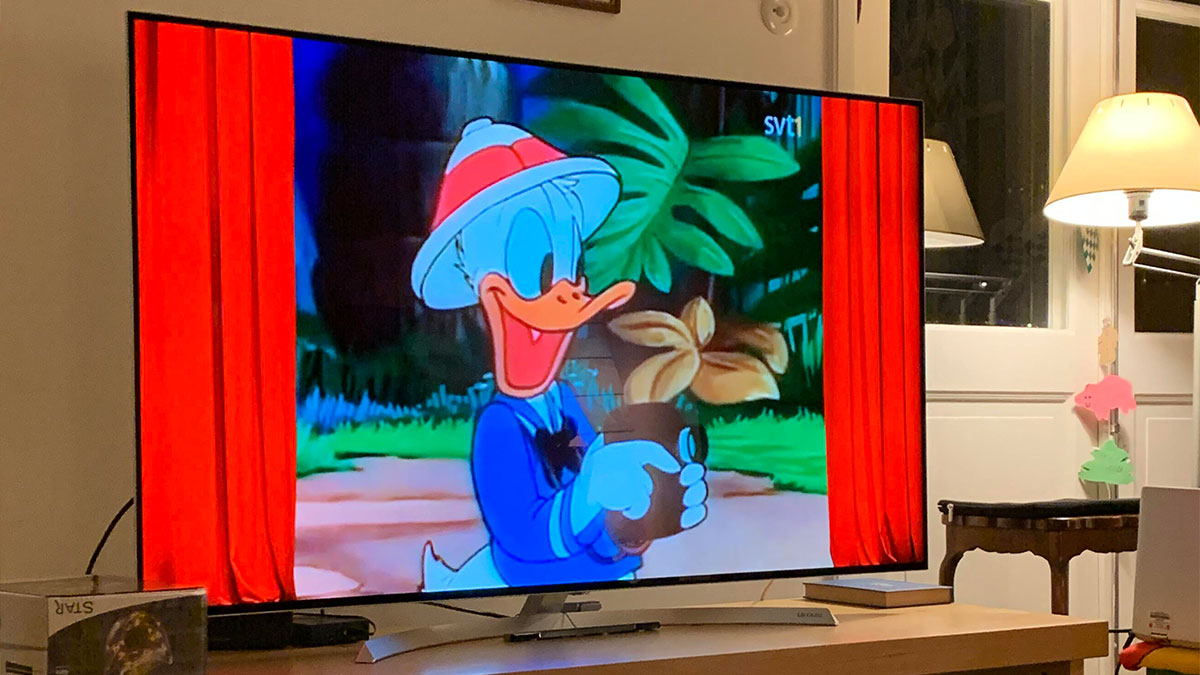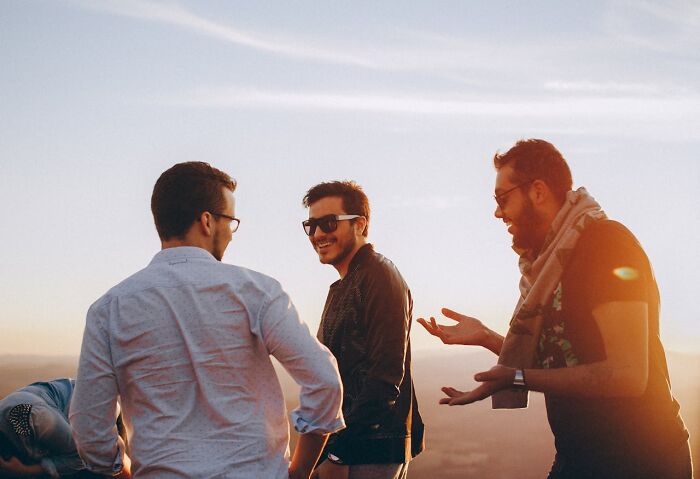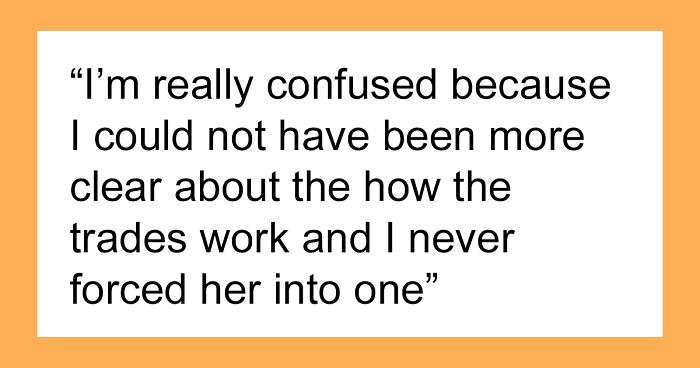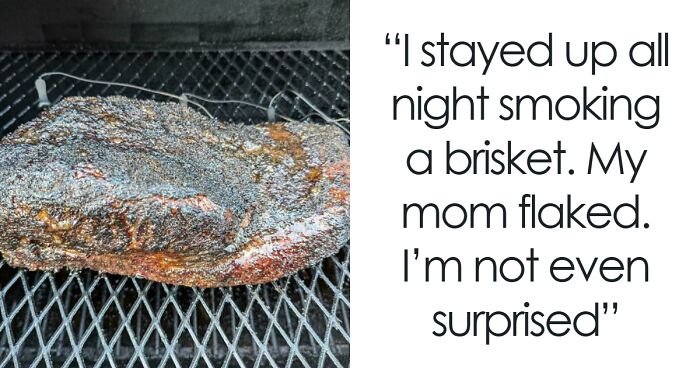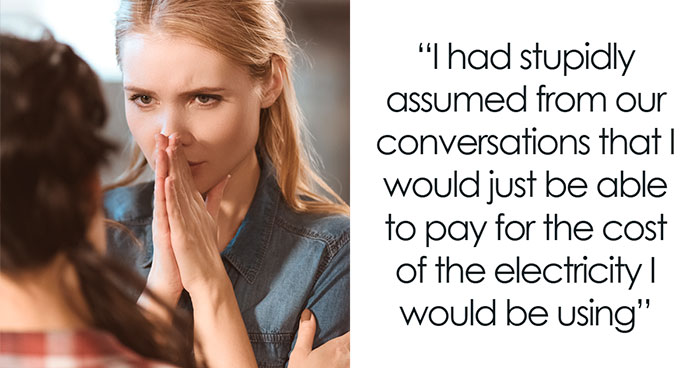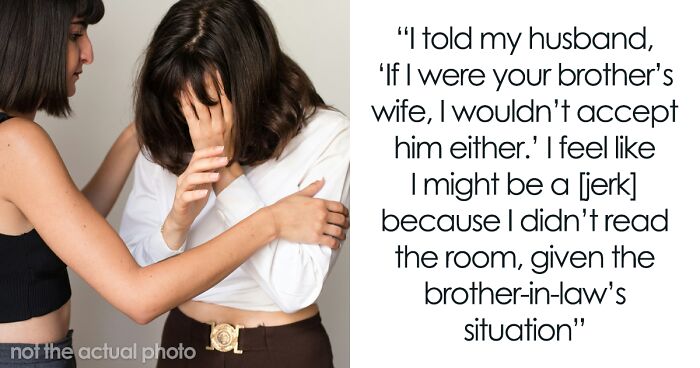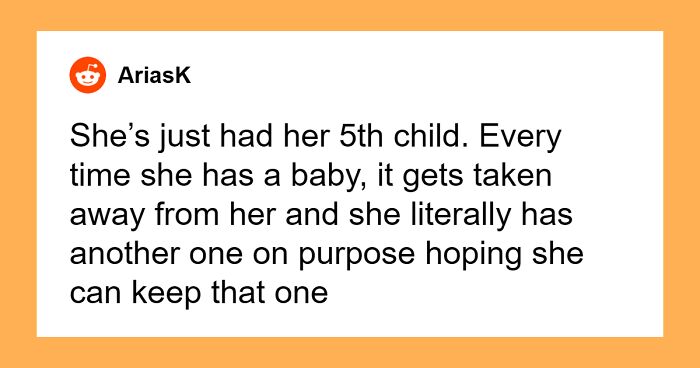Travel is awesome. It opens your mind, makes you more empathetic, lets you meet new people, gives you an excuse to eat tasty food, and allows you to go on actual adventures. What’s not to love? One of the best things about going abroad is that you get to experience cultures that might be very different from what you’ve known all of your life.
At times, those cultural norms can seem quite bizarre to outsiders. Some of the members of the r/AskReddit community shared the weird and cool things that are completely normal in their home countries but would confuse or amuse tourists. We’ve collected some of their most interesting insights below. Put on your hiking boots, grab your backpack, and scroll down to start your trip.
- Certain countries lack public trash cans, leaving tourists puzzled.
- Tourists often find it odd that some countries have no street addresses.
- Free refill policies in restaurants are rare outside the U.S.
- In some countries, tipping is seen as offensive and unnecessary.
This post may include affiliate links.
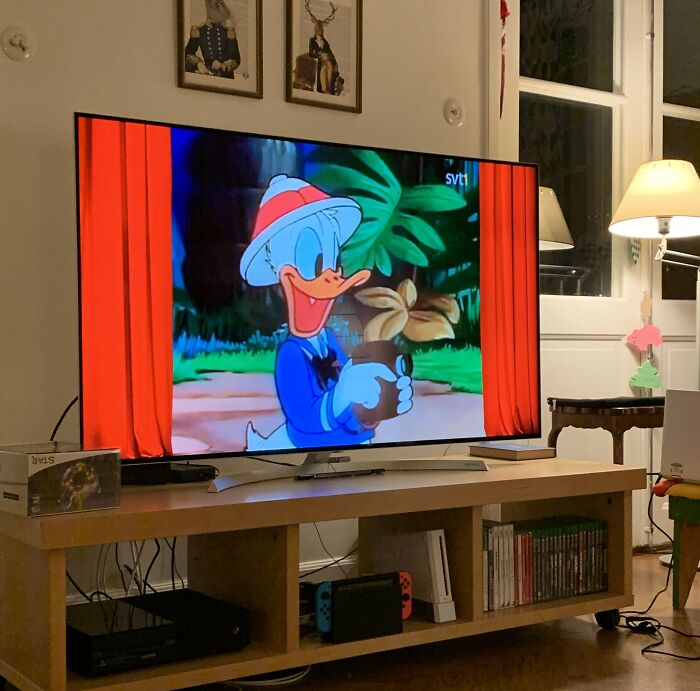 In Sweden, it's a common tradition to watch Donald Duck (known as "Kalle Anka" in Swedish) cartoons on Christmas Eve at 3 PM sharp. This isn't just a casual thing - it's a national event!
In Sweden, it's a common tradition to watch Donald Duck (known as "Kalle Anka" in Swedish) cartoons on Christmas Eve at 3 PM sharp. This isn't just a casual thing - it's a national event!
Every year, millions of Swedes gather around their TVs to watch a specific 1958 Disney special called "From All of Us to All of You" (or "Kalle Anka och hans vänner önskar God Jul" in Swedish, which means "Donald Duck and his friends wish you a Merry Christmas").
Same in Denmark. The show is called "Disneys Christmas show" and is on at the same time every year.
 Actually telling people how you’re doing when they ask you how you’re doing. We don’t use a lot of polite phrases just for the sake of being polite, so when people ask “how are you”, it’s interpreted as a genuine question rather than polite smalltalk or a greeting. My grandma once asked a cashier how she was doing and she replied “Not great. I have type 2 diabetes.”
Actually telling people how you’re doing when they ask you how you’re doing. We don’t use a lot of polite phrases just for the sake of being polite, so when people ask “how are you”, it’s interpreted as a genuine question rather than polite smalltalk or a greeting. My grandma once asked a cashier how she was doing and she replied “Not great. I have type 2 diabetes.”
(I’m from Norway)
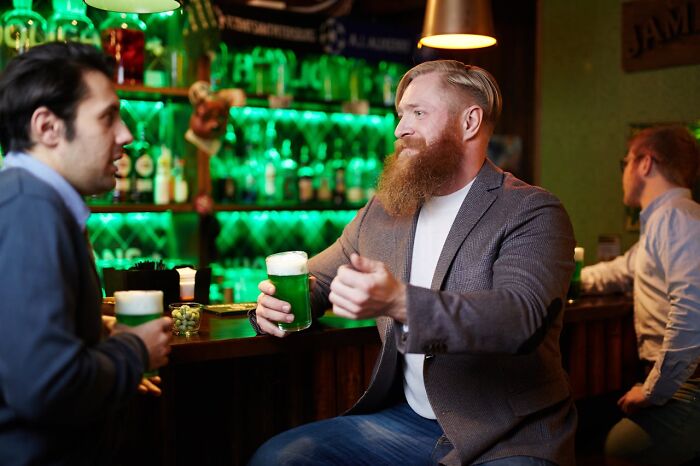 I'm Irish, and we tend to swear a lot in ordinary conversations. It means nothing most of the time, just a normal part of speech, but some of my non-Irish friends seemed a bit taken aback by it.
I'm Irish, and we tend to swear a lot in ordinary conversations. It means nothing most of the time, just a normal part of speech, but some of my non-Irish friends seemed a bit taken aback by it.
The global travel and tourism industry is huge and one of the most competitive in the entire world. It also has a large impact on various places’ economies. Statista reports that travel and tourism contributed a mind-boggling $9.9 trillion to countries’ gross domestic product. That comes out to around 9.1% of the total global GDP.
The industry is projected to grow to over $1.1 trillion by the year 2029. That same year, the hotels market, a large chunk of the travel and tourism industry, is expected to grow to 1.8 billion users.
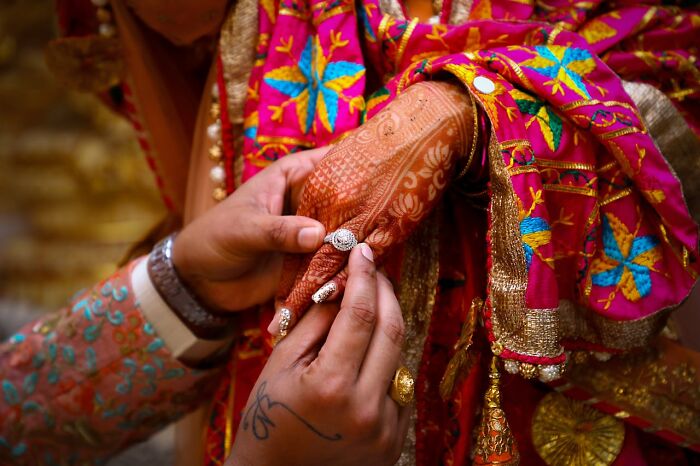 In India, arranged marriage is still the norm. I went to law school with a guy who already had an engineering degree. He told me he only enrolled in law school because his family expects him to return to India when he's finished schooling and have an arranged marriage. As a result, he keeps enrolling in new higher education programs to postpone his engagement.
In India, arranged marriage is still the norm. I went to law school with a guy who already had an engineering degree. He told me he only enrolled in law school because his family expects him to return to India when he's finished schooling and have an arranged marriage. As a result, he keeps enrolling in new higher education programs to postpone his engagement.
I have no idea if it's the same everywhere in India, but a colleague had an arranged marriage (as in the parents agreed they'd marry once they completed their degrees) but both she and the to-be husband would also had a say and if they didn't want, they wouldn't have to get married, so they dated for a year and then decided that yes, it was a good match - they're still together 30+ years on! Different story with a Pakistani client, he thought he was going to a party and it was his wedding, they didn't have a say at all and although they are still married they can't stand each other, they even work opposite shifts so interaction is absolutely minimal
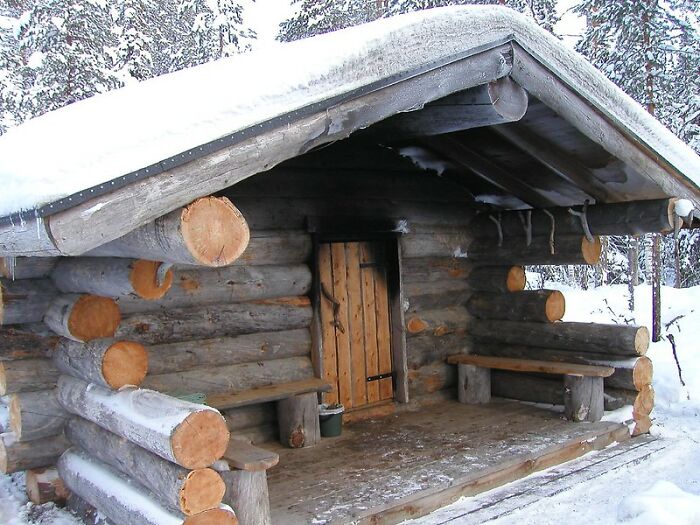 Going to the sauna with the whole family naked. Completely normal where I live but for almost the whole planet it would be very confusing.
Going to the sauna with the whole family naked. Completely normal where I live but for almost the whole planet it would be very confusing.
Edit: yes, Finland.
 People dying because they don't have free universal healthcare. A lot of people will choose to not get medical attention because they don't have health insurance. So they end up dying. It's cheaper to die than have insane medical debt.
People dying because they don't have free universal healthcare. A lot of people will choose to not get medical attention because they don't have health insurance. So they end up dying. It's cheaper to die than have insane medical debt.
The number of global inbound tourist arrivals recovered from 406 million during the height of the Covid-19 pandemic to 1.3 billion back in 2023. To put it another way, around every 6th person from around the world traveled abroad that year.
According to Statista, the most popular destination for international tourism continues to be Europe. Especially Southern and Mediterranean Europe. Around 265 million tourists traveled there in the 2022 period.
We pay companies in case we get sick or injured and they decide if we are sick or injured enough for them to use the money we pay them to help us. And we still have to pay more money once they help us.
 In Vietnam, you can buy anything you want (and as much of it as you want) from the local pharmacy without doctor's prescriptions
In Vietnam, you can buy anything you want (and as much of it as you want) from the local pharmacy without doctor's prescriptions
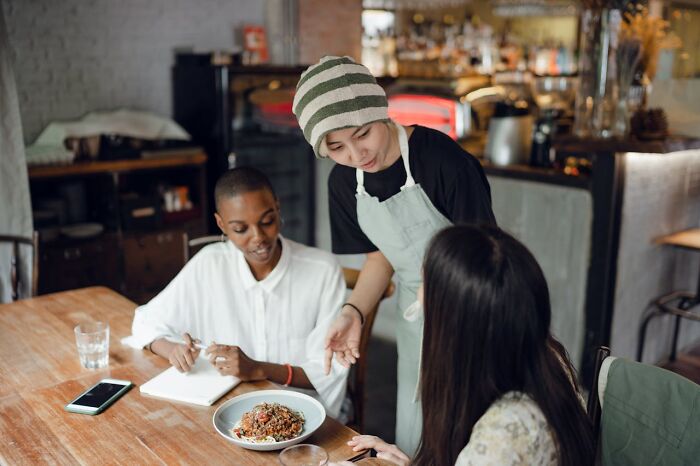 I've been living in China for two years and I still can't bring myself to shout in a restaurant to get a server's attention. I'm British, so I'm so used to awkwardly raising my hand and saying, 'Excuse me' when the server looks in my direction. But in China, oh boy, you just have to shout and hope you're louder than the next table.
I've been living in China for two years and I still can't bring myself to shout in a restaurant to get a server's attention. I'm British, so I'm so used to awkwardly raising my hand and saying, 'Excuse me' when the server looks in my direction. But in China, oh boy, you just have to shout and hope you're louder than the next table.
I watched a TV show explaining this part. If you're silent and meek in a restaurant, its either you did not enjoy the food or something's wrong. Well... I still respect their colorful culture. :D
With so many people traveling abroad and domestically, mutual empathy starts to matter. A lot! This means that, as a traveler, you should try to be as respectful of other people’s cultural norms as possible. It’s unlikely that you’ll be prepared for everything before you leave on your trip (many norms are very subtle and take time to notice and truly ‘get’), but what matters is the effort you put in.
Learning a bit of the local language and about the etiquette amd taboos goes a long way. Do some online research. Talk to some friends who’ve been where you’re going. Even consider going to a local cultural center for some useful resources.
On the flip side, it’s a reminder for locals to try to be friendly to outsiders. Sure, some tourists will inevitably be loud, rude, and disruptive. But many and more of them are decent folks who are having completely novel experiences outside their comfort zones. A few helpful words, a smile, some recommendations, and a gentle guiding hand can really make their trip memorable.
 In New Zealand being barefoot out of the house is considered normal. Many children walk barefoot to school (they have shoes, just choose not to wear them). You'll also see barefoot people in supermarkets and fast food restaurants
In New Zealand being barefoot out of the house is considered normal. Many children walk barefoot to school (they have shoes, just choose not to wear them). You'll also see barefoot people in supermarkets and fast food restaurants
It's not as common as it was many years ago. As kids we didn't wear shoes unless expected to. Mind you, no snakes or venomous creatures here
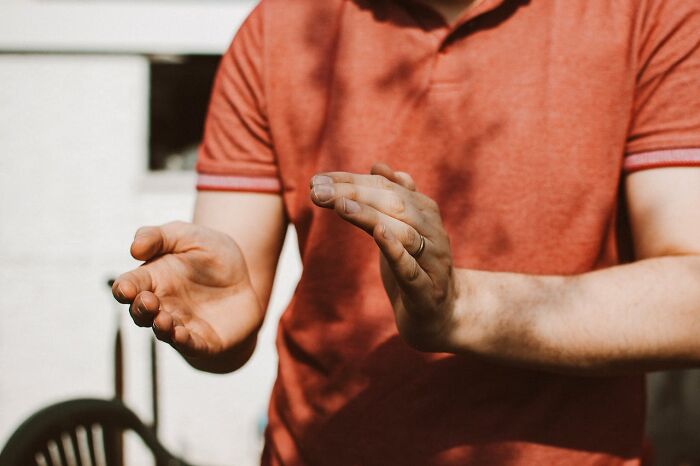 Cheering when someone accidentally drops and smashes something in a restaurant/pub.
Cheering when someone accidentally drops and smashes something in a restaurant/pub.
 Rootbeer floats. I tried to introduce this American delicacy to some German friends. They thought I was playing a trick on them. Thought it was so weird and gross they wouldn't even try it.
Rootbeer floats. I tried to introduce this American delicacy to some German friends. They thought I was playing a trick on them. Thought it was so weird and gross they wouldn't even try it.
No matter how different people might seem on the surface, there are always things that unite us. Food, for example, is something that’s shared across every culture across the globe. Sure, the recipes, ingredients, cooking methods, and eating etiquette might differ from country to country.
But broadly speaking, you’ll still see folks get together in a communal space to eat together. It’s difficult to imagine any culture not having some type of traditional soup or dumpling to offer. Eating is a way to connect with the people you love and to show respect to someone from outside the community.
Singing, dancing, music, and art—they’re also universal and core parts of the human experience. Even if you don’t speak the local language (well, yet), you can still find other ways to connect with everyone around you. Travel might seem scary initially, but you’d be surprised by how many people are kind to outsiders.
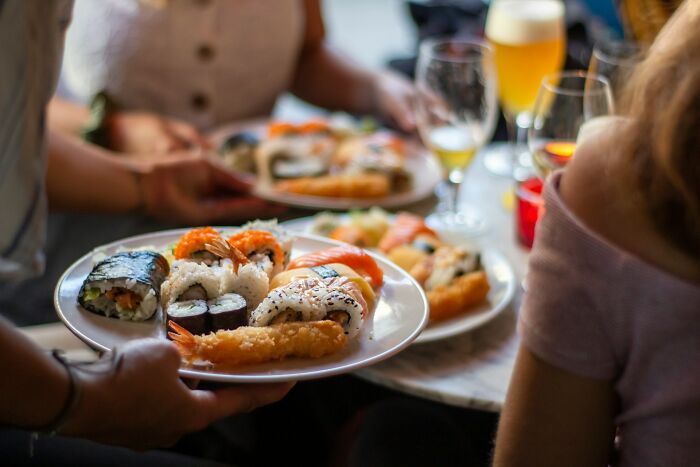 In Asian culture. Relatives fight with each other. Because each one wants to pay the bill for the whole family, eating out.
In Asian culture. Relatives fight with each other. Because each one wants to pay the bill for the whole family, eating out.
'I will pay. I am the most elder person. I have responsibility to the family'
'No I will pay. Even though I am young. I earn well enough. To cover. Let me pay this time'
That sorta argument happens.
When I tell it to westerners. They don't believe it.
 Here in Sydney, the police regularly deploy d**g detection dogs at train stations. They bring them into pubs as well. People visiting from overseas seem genuinely shocked by it, but most people here seem to ignore it.
Here in Sydney, the police regularly deploy d**g detection dogs at train stations. They bring them into pubs as well. People visiting from overseas seem genuinely shocked by it, but most people here seem to ignore it.
What are some local cultural norms that you think outsiders would find a bit (or even a lot) strange, dear Pandas? On the flip side, what were the biggest culture shocks for you on your last trip? How did you handle them and how quickly did you adapt? You can tell us all about it in the comments.
 Having a maple syrup reserve. The most lucrative heist in Canada's history was the Maple Reserve. Many millions of dollars in maple syrup were stolen. I just listened to the 'My Favorite Murder' podcast episode about it
Having a maple syrup reserve. The most lucrative heist in Canada's history was the Maple Reserve. Many millions of dollars in maple syrup were stolen. I just listened to the 'My Favorite Murder' podcast episode about it
 TV ads for pharmaceutical products.
TV ads for pharmaceutical products.
USA person here....I used to not care one way or the other. Now I can't stand it. I mute the commercials and go in another room for a few minutes.
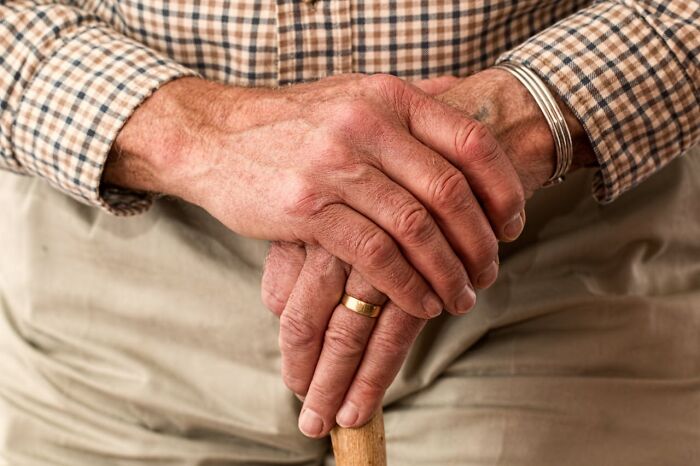 In Malaysia, calling older people not related to you uncle or aunty
In Malaysia, calling older people not related to you uncle or aunty
Adding tax onto the price listed on the tag. That drives non-USA folks nuts.
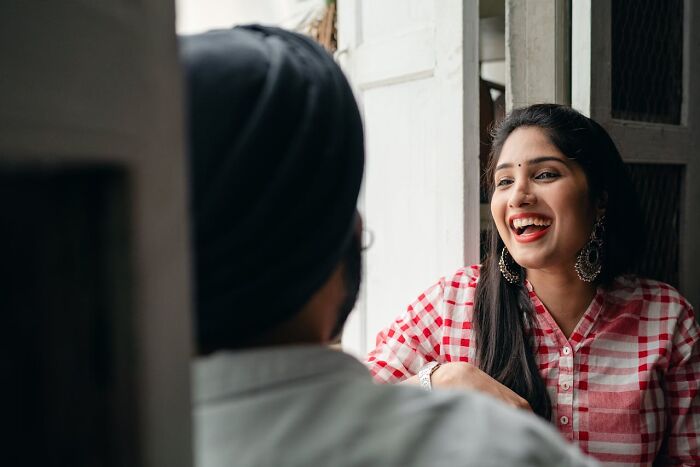 Living with parents is common in India. People aren't considered 'losers' for living with heir parents. I never understood why being 30 and living with your parents was considered as something 'bad'
Living with parents is common in India. People aren't considered 'losers' for living with heir parents. I never understood why being 30 and living with your parents was considered as something 'bad'
I think this is common in Asia. It's totally normal to live with your parents even into old ages. It might even be respected because it means you are taking care of your parents. I was surprised to learn that this is considered bad in the West. I was even more surprised when I heard that some family expect their child to move out at 18.
Single Indian woman here.. stay with my mother now (dad died a few years back). Am glad i am at home and can help my mom in many ways. We are each other's support. My sister and her son now stay with us due to her husband's death. We all are now each other's support. Such big support
That's lovely, that's what families should be like
Load More Replies...Adults living with their parents isn't looked down on too much, as long as they're doing their share. Adults living with their parents, but not contributing financially and/or not doing their share of the household chores is (and the child and parents are equally to blame).
Yeah and that's generally not what's happening but it is what's harped upon bc it's a marketing scheme, they've focused on that to sell more houses and product, bc if you separate families you sell twice as much c**p.
Load More Replies...I think the extended family is a great environment to raise children under and just generally provided your family isn't abusive etc. It's wonderful, you have support, community, human interaction, everyone is healthier and happier.
Yeah, doesn't it seem like the way it 'should' be?
Load More Replies...Moving out on my own seemed to be the only advantage of growing up.
I saw an Indian commercial once and it featured a young lady in her 20s with the voiceover "so and so lives away from her parents" and I thought it was really interesting
Families living together have their issues in Indian and similar societies. Parents esp. mothers dont know when to let go. The MIL and DIL fights are common.. But slowly things are changing. At times, the parents dont mind if the kids grow up and leave. They value their freedom. Also at times, many young people from smaller places have to move to big cities like Mumbai, Delhi and Bengaluru for better opportunities. They settle in these cities and have their own nuclear families.
Load More Replies...We’ve had our adult children living with us on and off because reasons amd they’re now all out of our home. But if they ever need us they’re welcome back.
In the US it isnt considered that anymore, now it is considered economical.
Yeah, there's a big difference between a culture of living with family out of choice and our US culture of living with family because our country is bleeding us out.
Load More Replies...In Denmark some families are moving back together. Just down the road from here there is one "generation house" as they call it. It typically mean that two or three generations move into the same house and help eachother with what is necessary. Parents get help with babysitting (so they may get to work more or may get to have more date nights without the kids) and grandparents may get help with going to the doctor or whatever they may need. It's usually organised so each couple has their own private room(s) and then there are shared space (kitchen, living room....). I think it's a great thing for people who don't have dysfunctional families. Personally, I'd love to do it but my family is sh1t.
Multi-generational families has always been more of a rural and urban cultural norm, mainly due to low incomes and the necessary labor extended family could provide. Suburbs have been around for about 100 years, but post WWII saw an exponential growth, and the nuclear family became the cultural norm.
It's not necessarily a bad thing here in the US. People who do it here have reasons for doing it. They may live with parents and pay them rent,buy their own stuff etc and help their parents. Besides it's really expensive for some people here. They are priced out of even the smallest size apartment here. I am disabled handicapped and my monthly income is way too low to afford even a closet. I lost my last place that I was at for 18 years due to an unexpected death of the person I was renting from. The kids of the owner after never visiting him came down,scavenged through things for valuables and I had to stop them from taking MY stuff as well. They decided to boot me and all the other people who lived there out on short notice. I'm temporarily staying somewhere else and paying them. I wasn't ready for or aware of how high people raised rent costs. On my income you can't save money. With my health issues all of these things are unrealistic. I know that I am disabled and not a loser. I'm not ashamed of myself. I've never tried illegal d***s, don't drink alcohol and have no criminal record. I'm aware that these days things like this can happen to anyone. So why be ashamed?
Covid made this more common in the US than it used to be. Possibly less so now (not sure) but a LOT of folks started having kids or others living with them. I also saw a lot of RVs / campers show up on various properties (like the yard next to a house) that were obviously being lived in.
 Weights and measures.
Weights and measures.
I’m 5’10” and weigh 195lbs
My over cooks at 350 degrees
My pool is 72 degrees
But
I drive 80km/h
The temp outside is 21 degrees
I buy meat in either lbs or kg
Milk comes in 1 litre bags
Liquor in 26 fl oz bottles
Lumber in 2”x4” (which are really 1 1/2 by 3 1/2) plywood in 4x8’ sheets.
 Flashing headlights to warn incoming traffic of police presence or speed traps. Got a few awkward reactions doing it abroad.
Flashing headlights to warn incoming traffic of police presence or speed traps. Got a few awkward reactions doing it abroad.
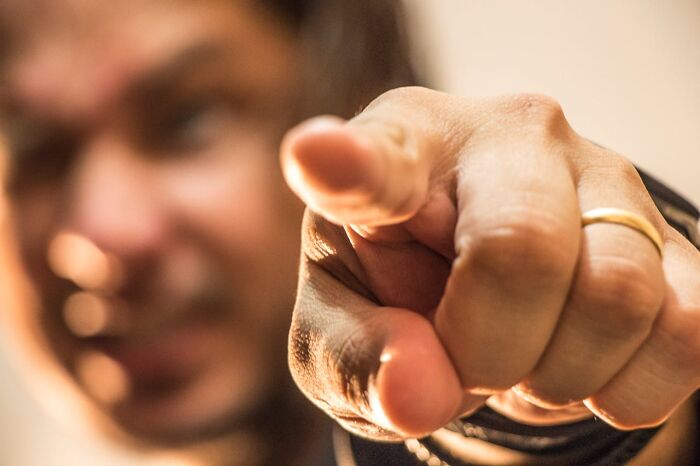 As an American, when i “lived” in England for three months, i realized just how rude and unacceptable Brits view the act of “pointing fingers”.
As an American, when i “lived” in England for three months, i realized just how rude and unacceptable Brits view the act of “pointing fingers”.
not that i was ever doing shit like pointing at and/or making fun of people, but just any kind of pointing even remotely in the vicinity of anyone’s direction was just a straight up no-no, regardless of context. my ex-fiancée (who was British) was constantly like “stop doing that” lmao. kinda interesting.
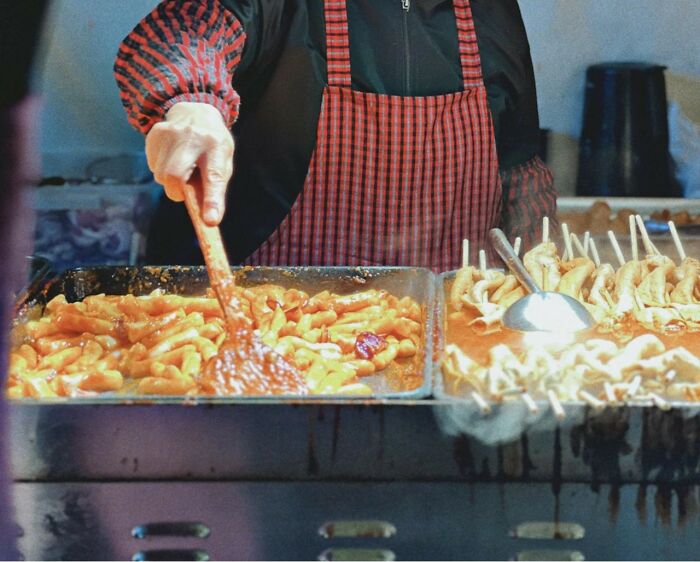 In my family's home country, it is normal to "try" things out in food stands, like, just shove your hand in the pile and try one, you like it? You buy by weight from the pile of whatever it is you tried. And it is apparently totally acceptable to just snack on whatever while you shop and browse through the store, as long as you buy something at the end.
In my family's home country, it is normal to "try" things out in food stands, like, just shove your hand in the pile and try one, you like it? You buy by weight from the pile of whatever it is you tried. And it is apparently totally acceptable to just snack on whatever while you shop and browse through the store, as long as you buy something at the end.
I had a massive cultural shock on my first visit 😂.
This would gross me out. Too many nasty people do not wash their hands after using the toilet
Waving at magpies. I've done it in the USA and people look to see who I'm waving at and find a bird. I don't stop waving to the birds f**k off because of the superstition that goes with the number of magpies you see.
>One for sorrow, Two for joy, Three for a girl, Four for a boy, Five for silver, Six for gold, Seven for a secret, Never to be told".
Coming over around diner time unannounced, fully expecting to be welcome and invited to dine with them.
Apparently, this is in the Netherlands. I can't even fathom someone walking into my home without telling me first, expecting to eat my food.
 1. No small talks. You don't even acknowledge strangers, no random "How are ya" to people you pass on the street. You can say "Good day" to your neighbours or people you know, but not strangers. When you go shopping, you don't engage in polite banter with the cashier, it's just "Good day", they tell you the price of your items, you say "Card. Thank you. Goodbye" and that's it. No small talk with friends. No small talk whatsoever.
1. No small talks. You don't even acknowledge strangers, no random "How are ya" to people you pass on the street. You can say "Good day" to your neighbours or people you know, but not strangers. When you go shopping, you don't engage in polite banter with the cashier, it's just "Good day", they tell you the price of your items, you say "Card. Thank you. Goodbye" and that's it. No small talk with friends. No small talk whatsoever.
2. You can say "How are you" when meeting a friend, and the normal response to it is to complain about your latest problems. After they're done complaining, it's your turn to say "Ah f**k" and offer some advice or help, or tell them about you being in a similar situation. Complain about your problems, then they offer advice or help. And both sides mean to help, it's not just "Ah, call me one day, I could help you with that".
3. Don't talk about mayonnaise unless you want to divide people and start a war. Don't even think about starting mayonnaise conversation when people are drunk. It's very serious. It's something that's discussed at early stages of relationship and can be a dealbreaker for many.
Edit to add some more.
4. We don't tip. There's no tip culture. No one expects tip. You tip for excellent service, and if you leave a tip, people will be happy, but no one will be pissed if you don't tip.
5. We love to pick mushrooms. Every autumn most people go to the woods to pick mushrooms at least once. And I'm not even talking about the psychedelic ones. Every person in the country has at least basic knowledge about mushrooms that are safe to eat and the toxic ones. I was surprised when I moved abroad and found out how many people in my new home were scared of picking mushrooms because what if they're not safe? They just have no idea at all.
6. Carp fish swimming in the bathtub before Christmas Eve.
7. We celebrate Christmas on the 24th of December, not the 25th, and we open our presents in the evening.
8. SHOES OFF AS SOON AS YOU ENTER THE HOUSE.
9. There's a trash can under the sink in the kitchen and one drawer that has a plastic bag filled with other plastic bags. In every house.
10. You know that gesture when you beat your fist to your chest twice, like “I got you bro”, sign of truth and generally bro vibe? Yeah well in my country’s sign language it means “f****t”.
 If we're having a casual gathering at a house, we usually don't sit on long tables but put newspapers on the floor as a makeshift "dining table" and sit around it to eat
If we're having a casual gathering at a house, we usually don't sit on long tables but put newspapers on the floor as a makeshift "dining table" and sit around it to eat
I've had parties like this my whole life and it was only when my foreigner friends got culture shock from it did I realize it's not a norm in other countries.
I'm guessing this is in a warm country, where being closer to the ground can be desirably cool.
Bunny chow 😅 " an Indian South African fast food dish consisting of a hollowed-out loaf of white bread filled with curry and a serving of salad on the side.".
This might be just the place to ask! I knew about "bunny" in SA, but does anyone know what Indian word it might be derived from? For instance, I'd imagined a word that maybe looked like "bhani" originally?
Bringing your own alcohol to parties, being naked in saunas, ice bathing, no gendered toilets.
In my experience, men tend to behave terribly in public restrooms, except when they're uncertain about the next person's gender. In those cases, they're more careful and tidy. Non-gendered bathrooms in Finland or Estonia were by far the most civilized experiences I've had, and I see no reason not to standardize them internationally. The model works in most households, and all it takes is a lock and a bin.
 Apparently ice in a drink.
Apparently ice in a drink.
I work for an airline with a lot of American passengers and they love their ice!
 Asking “how are you?” after greeting someone, and no, you are not supposed to answer this question. Goes like “how are you” ping pong. Especially weird when you switch to silence right afterwards (shop/taxi/store).
Asking “how are you?” after greeting someone, and no, you are not supposed to answer this question. Goes like “how are you” ping pong. Especially weird when you switch to silence right afterwards (shop/taxi/store).
 Congratulating everyone who is present at a birthday party.
Congratulating everyone who is present at a birthday party.
 Tipping.
Tipping.
It's very strange going to Asia or Europe and walking away from a meal without leaving money on the table or adding an extra $10 to the receipt.
Lots of hate on the US again. Funny and understandable, but most US pandas aren't the reason for it. None actually
American here. That's gracious of you to say. But polling suggests 40ish% of us are pretty f*****g vile.
Load More Replies...It's not 'guess the country' - tell us the country and then make your point. Too much North America as usual, the ones from the rest of the world were much more interesting.
In my country the government hate cars. They tax you for having a car. Most of the cost of fuel is tax, and then they tax you on the tax! There are not many places left you can park for free. Even the hospitals charge to park when you turn up! But they keep allowing people to build shops and services outside of towns. But our public transport is so expensive and bad that people are left no other option but to use cars.
It should be illegal for doctors and hospitals to charge patients and their visitors parking fees, which are higher than a co-payment.
Load More Replies...My favourite was learning about Canadian loonies and toonies, and thanks to pandas explaining about it being named after the bird on the tails side.
I would have expected guns to get a mention. The usa seem hell bent on executing each other and seem to consider a right to have arms is entrenched but it wasnt even in the constitution. Its was an amendment. Why not amend it back a bit?. Who needs an AR for protection?
When visiting London I found the people to be very "rude". My brother pointed out that it's because South Africans look each other in the eye when they walk past someone, and Londoners don't. I was always terrified someone was going to bump into me because they never looked up.
So, nice trivia game trying to work out the geographic location of most of these
Lots of hate on the US again. Funny and understandable, but most US pandas aren't the reason for it. None actually
American here. That's gracious of you to say. But polling suggests 40ish% of us are pretty f*****g vile.
Load More Replies...It's not 'guess the country' - tell us the country and then make your point. Too much North America as usual, the ones from the rest of the world were much more interesting.
In my country the government hate cars. They tax you for having a car. Most of the cost of fuel is tax, and then they tax you on the tax! There are not many places left you can park for free. Even the hospitals charge to park when you turn up! But they keep allowing people to build shops and services outside of towns. But our public transport is so expensive and bad that people are left no other option but to use cars.
It should be illegal for doctors and hospitals to charge patients and their visitors parking fees, which are higher than a co-payment.
Load More Replies...My favourite was learning about Canadian loonies and toonies, and thanks to pandas explaining about it being named after the bird on the tails side.
I would have expected guns to get a mention. The usa seem hell bent on executing each other and seem to consider a right to have arms is entrenched but it wasnt even in the constitution. Its was an amendment. Why not amend it back a bit?. Who needs an AR for protection?
When visiting London I found the people to be very "rude". My brother pointed out that it's because South Africans look each other in the eye when they walk past someone, and Londoners don't. I was always terrified someone was going to bump into me because they never looked up.
So, nice trivia game trying to work out the geographic location of most of these

 Dark Mode
Dark Mode 

 No fees, cancel anytime
No fees, cancel anytime 


